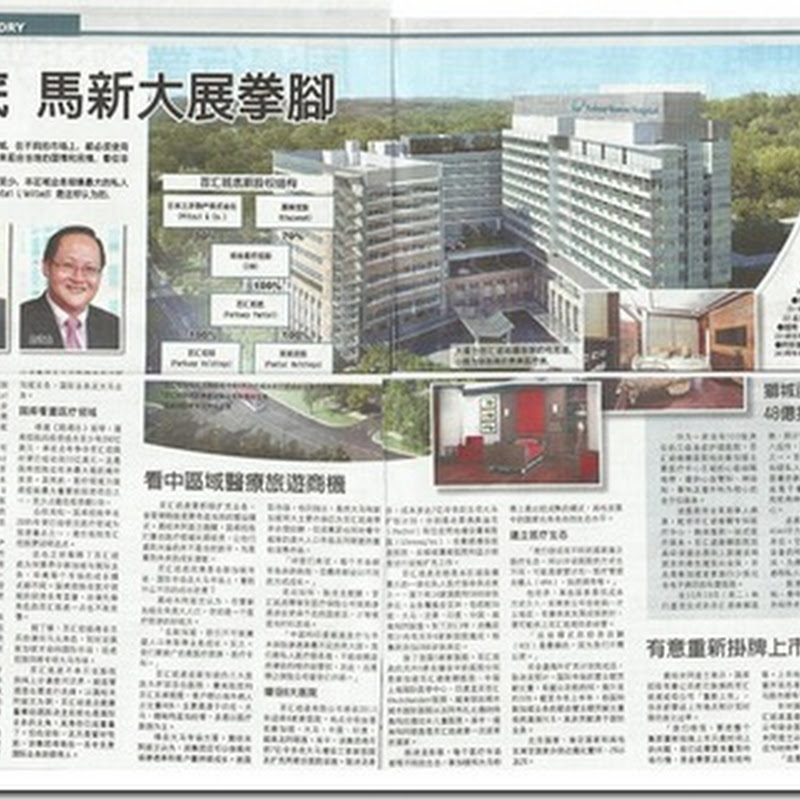It has started the ball rolling in the strreamlining of its non-core assets. It has disposed of its takes in Gleneagles Hospital KL.
The Tan family appears to be similarly sold on the notion that IGB is trading at depressed valuations that do not reflect the company’s true worth. The family controls IGB via public traded GOLDIS Bhd, vehicles such as Wah Seong Trading Co Sdn Bhd and Tan Chin Nam Sdn Bhd, as well as direct shareholding in the property developer.
IGB has been buying back its shares for weeks. IGB had bought back 4.64 million treasury shares at RM1.52 each, worth some rm14.2 million.
The company owns a stable of prime property assets that generate steady rents, unlike many of its peers, which are burdened by half completed projects and the added “curse” of ballooning raw material prices.
IGB owns Mid Valley Megamall via FrisAsset Holdings Bhd, an investment holding company set up to manage the mall. The comp[any also owns The Gardens Mid Valley. Cititel Mid Valley and Boulevard Mid Valley, three offices towers – Menara IGB, Centrepoint North and South – and is completing the remaining phases of its Mid Valley City development.
Nearly all of IGB’s completed office and retail developments boast between 80% and 100% occupancy, with the exception of newer buildings such as its office towers.
Its balance sheet is also healthy. It has a net operating cash flow of RM355 million, which will be further boosted by the gains from the Gleneagles stake sale. It is expected the gains to reduce the company’s net gearing to 10% in FY2008.
So with its healthy financials and asset base, what is keeping IGB’s share price down?
The market is being very cautious about property stocks in general. As for IGB, their foreign shareholding is high. Foreign funds are now selling down on Malaysian company, so IGB is naturally a casualty by default.
A big factor could be the company’s reluctance to dish out dividends to shareholders, worsened by the fact that the share price has been weakened by the overall lacklustre property market. In this kind of market, the best way for IGB to revise the share price is to return cash to shareholders. They can either carry out a capital repayment exercise or better yet, be more aggressive in distributing dividends.
IGB’s balance sheet is more than able to support investments in its ongoing projects, as well as overseas expansion. The company is also expanding its hotel business in Australia and Bangkok and recently said it is negotiations for land acquisitions and shopping malls in markets like china, India, Vietnam and the US and the UK.
IGB’s yearly hotel expansion capital expenditure, for indtance, is between Rm100 million and Rm150 million, which the company is more than able to finance.
Holding the Tan family back could be the complicated shareholding structure involving IGB and their two other property related listed entities, GoldIs and Krisassets. There is a need for a more efficient structure to minimise leakages.
Under the current structure, the Tan family holds direct interests in IGB as well as via GoldIs, in which they have a 41.44% stake, via their vehicles. GoldIs owns a 25.7% stake in IGB. The company, in turn holds 74.89% stake in KrisAssets. The Tan family directly holds about 9% stake of IGB.
This complex shareholding is not really efficient, from the perspective of the Tan family. Their direct exposure in IGB is limited to GoldIS’s interest 25%. So there is really little incentive for the major shareholder to push for a higher dividend payout.
One solution is for the Tan family could be to increase their shareholding in GoldIS to 50%, which could be affordable now with the depressed market price. It would also make sense for the company to absorb KrissAssets into IGB, as by itself KrisAssets is not as attractive as ti could be to shareholders.
Prices are low enough (July 2008) for IGB’s shareholding structure bearable costs and to court investors with generous dividends.
Uninvestable – Oil CEOs Unconvinced With Trump To Plunder Venezuela
-
Every time the United States makes its move against a sovereign state –
either through an invasion or a political intervention – it’s always about
oil or...
1 day ago





















































No comments:
Post a Comment